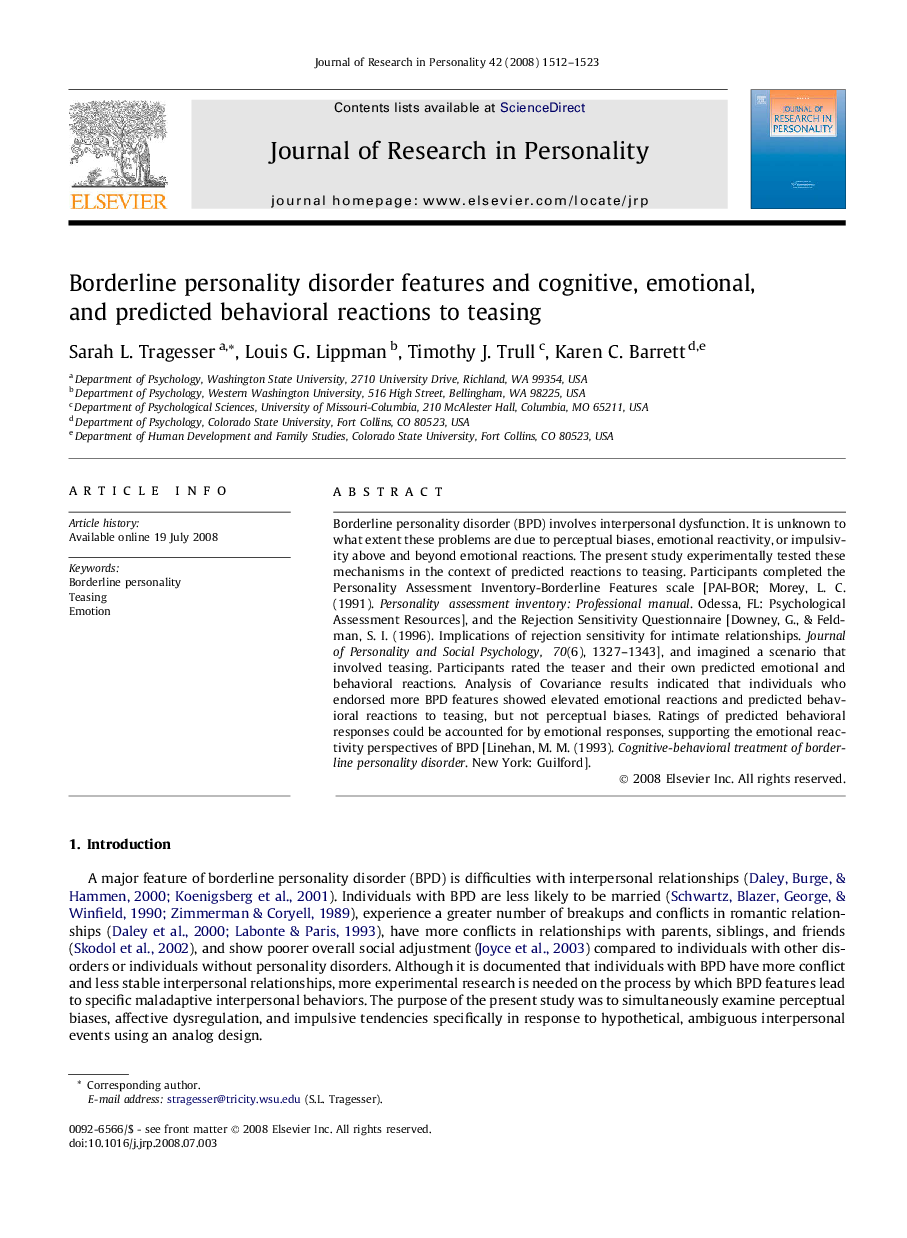| Article ID | Journal | Published Year | Pages | File Type |
|---|---|---|---|---|
| 952074 | Journal of Research in Personality | 2008 | 12 Pages |
Borderline personality disorder (BPD) involves interpersonal dysfunction. It is unknown to what extent these problems are due to perceptual biases, emotional reactivity, or impulsivity above and beyond emotional reactions. The present study experimentally tested these mechanisms in the context of predicted reactions to teasing. Participants completed the Personality Assessment Inventory-Borderline Features scale [PAI-BOR; Morey, L. C. (1991). Personality assessment inventory: Professional manual. Odessa, FL: Psychological Assessment Resources], and the Rejection Sensitivity Questionnaire [Downey, G., & Feldman, S. I. (1996). Implications of rejection sensitivity for intimate relationships. Journal of Personality and Social Psychology, 70(6), 1327–1343], and imagined a scenario that involved teasing. Participants rated the teaser and their own predicted emotional and behavioral reactions. Analysis of Covariance results indicated that individuals who endorsed more BPD features showed elevated emotional reactions and predicted behavioral reactions to teasing, but not perceptual biases. Ratings of predicted behavioral responses could be accounted for by emotional responses, supporting the emotional reactivity perspectives of BPD [Linehan, M. M. (1993). Cognitive-behavioral treatment of borderline personality disorder. New York: Guilford].
